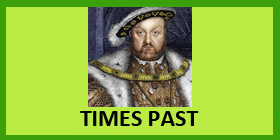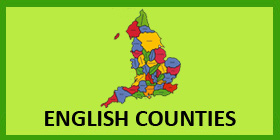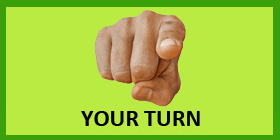




Back to the Birth Of The Millennials calendar



In September 1997, as per their election promise, the government held referendums in Scotland and Wales and a majority of voters chose to establish a Scottish parliament and a Welsh assembly. These would then be given certain powers which, before, had been held by the government in Westminster. The powers given to the two devolved assemblies are roughly the same.
They both control agriculture, forestry and fishing, education, the environment, health, housing, local government, the fire service and economic development. Scotland, which had always had its own legal system, also controls justice, policing and the courts. Westminster is responsible for all non-devolved powers which means it could change the devolved powers but only if the devolved governments agree.

 Scotland has a "parliament" as opposed to an "assembly", the difference being that they can pass bills in the areas over which they have control. They can also, although they never have, raise or lower income tax by 3p in the pound.
Scotland has a "parliament" as opposed to an "assembly", the difference being that they can pass bills in the areas over which they have control. They can also, although they never have, raise or lower income tax by 3p in the pound.
The Welsh assembly can also make its own laws in the areas they have control but has no power to raise or lower taxes.
 As you know, I hope, the United Kingdom is made up of 4 countries. The fourth of those, Northern Ireland, had been a problem for many years.
As you know, I hope, the United Kingdom is made up of 4 countries. The fourth of those, Northern Ireland, had been a problem for many years.
Do you remember 1921? You can read it here. Ireland was split in two with the southern part becoming a separate country and the north staying within the United Kingdom. That northern part contained mainly people of the Protestant religion while the south was mainly Catholic. However, in the north, there was disagreement between the unionists, who wished to stay part of the UK and the republicans who wanted to join Northern Ireland to the southern part. Those republicans were mainly Catholics and, as there was a large Protestant majority, they complained that they lost out for jobs and housing.
Starting in 1968 there were many violent clashes between both sides. The Irish Republican Army (IRA) were the main force on the Catholic side and the Royal Ulster Constabulary (RUC), supported by the regular British Army and a locally recruited Army unit, the Ulster Defence Regiment (UDR) were against them. While the major reported violence was between these factions there was also local, community violence.
In 1969 Catholic civil rights marches and counter-protests by Protestant loyalists grew into serious, violent unrest. British troops were sent in. As things got worse the Northern Ireland parliament was suspended and direct rule came from London.
By the early 1970s, the IRA started a bombing campaign in England. On 21 November 1974 bombs went off in two Birmingham pubs. 21 people were killed and 182 injured. The IRA have never admitted it was them but there are signs it was. However, it also seems that they may not have intended to kill ordinary people and they wanted to give a warning but it was delayed. On 8 November 1987 an IRA bomb went off during a Remembrance day service in Enniskillen killing 11 people and injuring 63. The IRA said it had made a mistake and that its target had been the British soldiers parading to the memorial. I believe there are very few occasions when you can justify killing another human being and so claiming you made a mistake and killed the wrong people doesn't impress me.
 It wasn't only the Republican side who “made mistakes”. On Sunday 30 January 1972 ten thousand people gathered in Londonderry for a civil rights march. The British Army had sealed off the original route so the march organisers led most of the demonstrators on a different route. Despite this, a number of people continued on towards an army barricade where local youths threw stones at soldiers, who responded with water cannon, CS gas and rubber bullets. As the riot broke up the soldiers of the 1st Parachute Regiment were ordered to move in and arrest as many of the rioters as possible. In the minutes that followed, some of these paratroopers opened fire on the crowd, killing thirteen men and injuring 13 others, one of whom died some months later.
It wasn't only the Republican side who “made mistakes”. On Sunday 30 January 1972 ten thousand people gathered in Londonderry for a civil rights march. The British Army had sealed off the original route so the march organisers led most of the demonstrators on a different route. Despite this, a number of people continued on towards an army barricade where local youths threw stones at soldiers, who responded with water cannon, CS gas and rubber bullets. As the riot broke up the soldiers of the 1st Parachute Regiment were ordered to move in and arrest as many of the rioters as possible. In the minutes that followed, some of these paratroopers opened fire on the crowd, killing thirteen men and injuring 13 others, one of whom died some months later.
The British Army maintained that its troops had responded after coming under fire, the people of Londonderry saw it as murder. After two inquiries and nearly 40 years, a final inquiry reported in 2010 and established the innocence of all the victims and said the British Army was responsible for what happened. Many people feel that this outburst of violence contributed in no small way to the increase in violence by the IRA and other groups.
On March 14th 2019, the Public Prosecution Service said there was enough evidence to prosecute one soldier, named as Soldier F, for the murders of two people killed, James Wray and William McKinney, and that he would also face charges for the attempted murders of Patrick O'Donnell, Joseph Friel, Joe Mahon and Michael Quinn. At this stage (2019) he has not be found guilty. It is only that the Public Prosecution Service feel there is sufficient evidence to bring him to trial. They felt that as regards to the other soldiers who opened fire there was not enough evidence to bring them to trial.
It is a very difficult position and you can form your own views, hopefully after looking at factual evidence. For me, and as you know I always tell you when I am giving my own opinion, I do not believe that serving in any military organisation means you are above the law.
As you know I grew up in the nineteen sixties, a time when many of us protested about the war in Vietnam. A very brilliant folk/protest singer, who you probably haven't heard of, called Phil Ochs wrote these lines
Is there anybody here who thinks that following the orders takes away the blame?
Is there anybody here who wouldn't mind a murder by another name?
Think about it.
Back in the 1970s and the IRA may not have meant to harm civilians in England but targets within the British government were viewed as OK and in March 1979 the Conservative MP Airey Neave was killed by a car bomb when he drove out of the Houses of Parliament car park. Five months later Earl Mountbatten, an uncle of Prince Philip, was killed when a bomb went off on his fishing boat while he was staying at his home in Ireland. Other people on board were also killed or badly injured. The IRA admitted planting the bomb the night before.
 In 1984, on 12 October 1984, at 2.54 in the morning, a bomb went off at a hotel in Brighton where leaders and members of the Conservative Party were staying for their yearly conference. The bomb had been planted several weeks earlier by an IRA member called Patrick Magee. The idea had been to kill the Prime Minister Margaret Thatcher. They failed and she was uninjured but 5 people died and another 34 were injured, some very seriously.
In 1984, on 12 October 1984, at 2.54 in the morning, a bomb went off at a hotel in Brighton where leaders and members of the Conservative Party were staying for their yearly conference. The bomb had been planted several weeks earlier by an IRA member called Patrick Magee. The idea had been to kill the Prime Minister Margaret Thatcher. They failed and she was uninjured but 5 people died and another 34 were injured, some very seriously.
Magee was caught and sentenced to 35 years in prison.
Throughout the 1970s, 1980s and early 1990s different groups waged violent campaigns to try to achieve what they wanted. During these “troubles” it is estimated that over 3,500 people were killed and as many as 50,000 injured.
The simple facts of all this, as with most wars and conflicts, was that no one was getting anywhere. Informal talks began and in 1994 the Irish Republican Army called a ceasefire and loyalists groups soon followed. This then led to more formal discussions and the so-called Good Friday Agreement came into being in December 1998. It set up a power-sharing executive, with ministerial posts distributed by party strength, and an elected assembly. The deal was backed by voters in referendums in Northern Ireland and the Republic, which scrapped its constitutional claim to the north.
 However that assembly has been suspended several times, but the violence of earlier times has ceased and progress has been made. Both sides have made concessions and there is hope for the future. Two people who should receive praise for the eventual working of the assembly were the loyalist Ian Paisley and the republican Martin McGuinness, who worked as First Minister and Deputy First Minister for a year from 2007. Ian Paisley died in September 2014 and Martin McGuinness in March 2017.
However that assembly has been suspended several times, but the violence of earlier times has ceased and progress has been made. Both sides have made concessions and there is hope for the future. Two people who should receive praise for the eventual working of the assembly were the loyalist Ian Paisley and the republican Martin McGuinness, who worked as First Minister and Deputy First Minister for a year from 2007. Ian Paisley died in September 2014 and Martin McGuinness in March 2017.
Now, for the first time for nearly 200 years, Scotland, Wales and Northern Ireland had some power within their countries. Of course this presented a strange problem because, while in their assemblies and parliaments, decisions were made by ministers elected only by their own people, in the English parliament that was not true. Decisions about education, health etc in England are made by MPs, some of whom represented, and were voted for, by the electors of Scotland, Wales and Northern Ireland.
Forward to 2000AD

